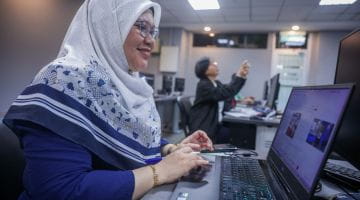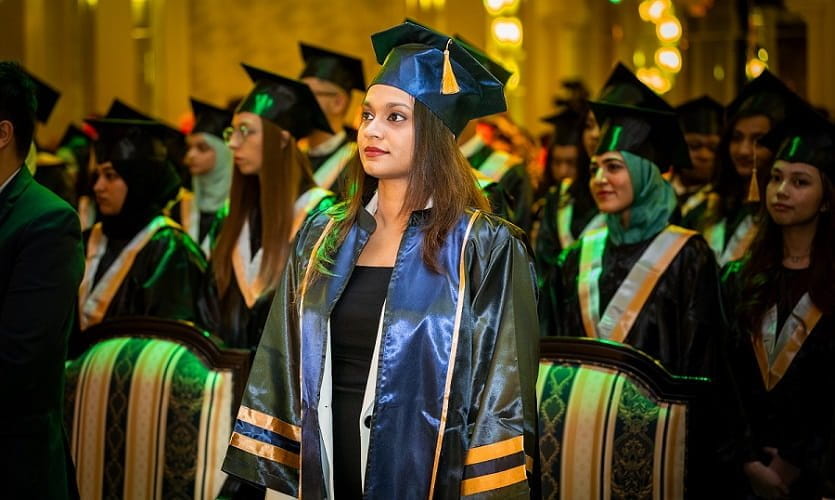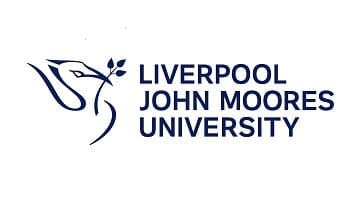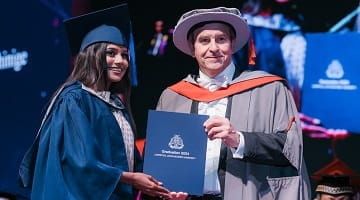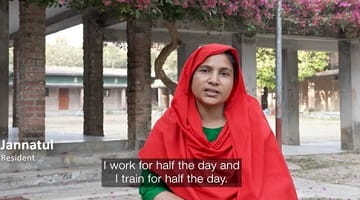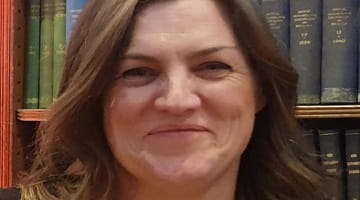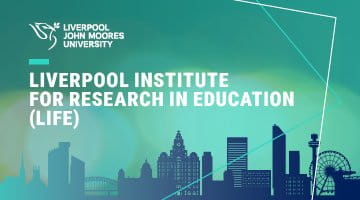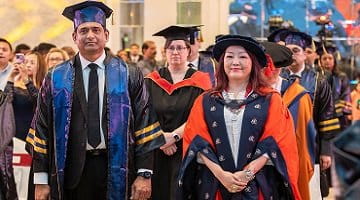About this course
Become a superb Secondary teacher at LJMU. Graduate with a Postgraduate Certificate in Education (PGCE) and Qualified Teacher Status (QTS) for the 11-16 age range.
- 3 minute watch - hear from secondary teachers who studied teacher training with LJMU. Prepare for a career as an innovative and creative secondary teacher on a course delivered in partnership with schools committed to ensuring your success
- Choose from a range of subject areas (see the Details tab for more information)
- Teach across the 11-16 age range with additional post-16 teaching opportunities
- Become an inquisitive, creative and reflective practitioner
- Study full-time, over 10 months
- Spend 120 days in a 'Home School' placement with a mid-course 'Alternative' placement to ensure experience in a range of school settings.
Our PGCE Secondary programmes are designed to prepare you for a career as an innovative and creative teacher. You will be trained by highly experienced academic staff and school mentors.
The professional experience you acquire during your studies, alongside University input will enable you to develop your ability to plan, teach and manage learning in different settings and socio-economic contexts.
The University has a well-established reputation for delivering innovative approaches to teacher education. Our academic team is made up of successful teachers who maintain strong links with schools and professional bodies, ensuring you receive the most up-to-date training and key insights into the field during your course.
Our emphasis is on developing teachers who are reflective practitioners able to apply a deep understanding of the curriculum, learners and learning to provide the very best and most appropriate learning opportunities for all children, with a positive impact on their development and achievement.
The professional experience you acquire during your studies, alongside University input will enable you to develop your ability to plan, teach and manage learning in different settings and socio-economic contexts.
Courses can be viewed on the government's Get into Teaching website.
Course modules
Discover the building blocks of your programme
Further guidance on modules
Modules are designated core or optional in accordance with professional body requirements, as applicable, and LJMU’s Academic Framework Regulations. Whilst you are required to study core modules, optional modules provide you with an element of choice. Their availability may vary and will be subject to meeting minimum student numbers.
Where changes to modules are necessary these will be communicated as appropriate.
Core modules
Optional modules
Professional accreditation
Our Initial Teacher Education courses are monitored by Ofsted - the Office for Standards in Education.
In June 2023, Secondary Initial Teacher Training received a “good” rating following a rigorous 4-day inspection. Ofsted noted many strengths in provision, which are noted below.
Leaders have designed an ambitious curriculum that goes beyond the DfE’s core content framework and is underpinned by appropriate and pertinent research. Student teachers discuss and debate relevant theory in the centre-based training and are given opportunities to apply their understanding in placement schools.
Trainees’ professional and subject-specific studies are clearly and purposefully interwoven at this partnership. For example, trainees get a secure grounding in generic pedagogy, as well as the subject-specific knowledge that they need to teach their subject well. Tutors and mentors help trainees to understand the connections between what they are learning and how to use and apply this knowledge in placement schools.
The provider has developed a network of strong relationships with partner schools. Communication between the different partners is a strength. Furthermore, all partners display a strong commitment to supporting the ambition of social justice for all pupils. Student teachers understand the importance of breaking down barriers to learning for disadvantaged pupils and for pupils with SEND and also learn about ensuring equality of opportunity for all pupils in their care.
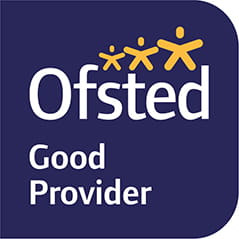
Your Learning Experience
An insight into teaching on your course
We offer the following Secondary pathways at LJMU:
- Art and Design: Secondary with QTS
- Biology: Secondary with QTS
- Chemistry: Secondary with QTS
- Computer Science: Secondary with QTS
- Design and Technology: Secondary with QTS
- English: Secondary with QTS
- Geography: Secondary with QTS
- History: Secondary with QTS
- Mathematics: Secondary with QTS
- Modern Foreign Languages: Secondary with QTS
- Music: Secondary with QTS
- Physical Education: Secondary with QTS
- Physics: Secondary with QTS
- Performing Arts (Dance): Secondary with QTS
- Performing Arts (Drama): Secondary with QTS
- Religious Education: Secondary with QTS
Study hours
University-based study includes:
- a full-time block of three weeks at the start of the course in September
- one day per week until January
- six one-week study blocks at university between October and June
- a number of conference days throughout the year
You will undertake a significant amount of independent study and preparation to support your course assignments and school-based work (planning, preparation and assessment).
Teaching methods
You will learn via lectures, seminars, interactive workshops, group discussion and reflection, problem-solving and micro-teaching. You will also make use of our online learning environment.
You will be allocated a mentor who will organise and supervise your school-based training. Your mentor will be supported by your LJMU Liaison Tutor who will stay in regular contact throughout the course visit your school several times to monitor your progress. Additional professional development sessions are organised in school during placements.
Tutorial support is an important part of the LJMU learning process and you will receive a personalised service that will enable you to set targets and achieve your potential. Your Personal Tutor will support your academic and professional development and will meet with you formally during the year.
Applied learning
You will spend 120 days on school placement.
Placements are organised in our partnership schools in the Greater Merseyside area. For the majority of the training you will gain your teaching experience in a 'Home School' with a six-week placement in an 'alternative' school after Christmas.
Your school training involves the preparation and delivery of learning sequences and lessons to small groups and whole classes of learners, with expectations and workload increasing during the course. This work is supported by a Teacher-Mentor who will enhance your professional learning experience in school.
How learning is monitored on your programme
To cater for the wide-ranging content of our courses and the varied learning preferences of our students, we offer a range of assessment methods on each programme.
Assessment methods include: critical reflections on research and practice, small scale research projects, the design and analysis of learning experiences, presentations and a portfolio of professional activities.
You will need to monitor your progression towards achieving the professional standards required for Qualified Teacher Status (QTS) and maintain a professional development portfolio.
Where you will study
You will have access to all of the classroom and teaching facilities provided by your placement schools as well as the expertise of educational professionals at LJMU.
Based in the new Education Building in the heart of the Mount Pleasant campus, the School of Education features a wide range of cutting-edge facilities, including a pedagogy room, lecture rooms, computing facilities and a nearby Outdoor Learning Zone for our Natural Curriculum projects. Students also benefit from independent study spaces, a close-by cafeteria and library, and access to student welfare and support.
Course tutors

Daniel Dennis
Head of Secondary Programmes
As head of secondary programmes at Liverpool John Moores University, I have responsibility for management and co-ordination of second programmes.
Prior to working at LJMU I taught in secondary schools in England. I moved into Initial Teacher Education in 2003 and joined the LJMU School of Education in 2016.
My doctoral work explores professional ethics for beginning teachers.
Degrees:
University of Surrey, UK, BA(Hons)
Middlesex University, United Kingdom, PGCE
University of Liverpool, United Kingdom, MSc
Roehampton University, United Kingdom, EdD
-

-
 Lecturer/Senior Lecturer
Lecturer/Senior Lecturer
Career paths
Further your career prospects
LJMU has an excellent employability record with 96% (HESA 2018) of our postgraduates in work or further study six months after graduation. Our applied learning techniques and strong industry connections ensure our students are fully prepared for the workplace on graduation and understand how to apply their knowledge in a real world context.
Teacher Training employment prospects at LJMU are extremely good, with most subjects exceeding the national averages.
The PGCE course is intended for those preparing to enter the teaching profession and most of our students go on to achieve their career goal, working in state or independent schools and colleges. Teaching provides a variety of pathways leading to specialist roles ranging from pastoral to subject leadership and on into school leadership positions.
Having gained teaching experience, a number of graduates move into associated professions such as educational psychology, consultancy, and in the education service sector outside of schools.
Tuition fees and funding
- Full-time per year:
- £9,535
Fees
The fees quoted above cover registration, tuition, supervision, assessment and examinations as well as library membership and student IT support with access to printed, multimedia and digital resources including programme-appropriate software and on campus wifi.
Financial Support
There are many ways to fund postgraduate study for home and international students. From loans to International Scholarships and subject-specific funding, you’ll find all of the information you need on our specialist postgraduate funding pages. The University offers a range of financial support for students. You'll find all the information you need on our specialist financial support pages including details of the Student Support Fund and other activities to support with the cost of living.
Additional Costs
In addition to fees, students should also keep in mind the cost of:
- Accommodation
- Travel costs and field trips unless paid for by LJMU
- Stationery, IT equipment, professional body membership and graduation gown hire
Full-time PGCE students are eligible for the same range of financial support as undergraduate students.
You will have access to:
- a non means-tested student loan to cover your tuition fees
- a means-tested student loan to help cover your living expenses
- a means-tested maintenance grant, which does not have to be paid back
- a means-tested LJMU Bursary worth up to £500, which does not have to be paid back
For the latest information about bursaries and funding, please visit the Get Into Teaching website.
Entry requirements
You will need:
Qualification requirements
How to apply
Securing your place at LJMU
If you want to join a PGCE with us, you will need to apply through the Apply for Teacher Training service here https://www.gov.uk/apply-for-teacher-training
Courses can be viewed on the government's Get into Teaching website. Given the popularity of some specialisms and the limited number of places, we recommend applying as early as possible to avoid disappointment.
Ability
Applicants will be assessed for their:
- depth of relevant subject knowledge
- potential to work effectively at Masters level
- ability to work with others in teams
- ability to manage people and projects
Attitude
Applicants will be expected to demonstrate:
- an interest and enthusiasm for their chosen subject area
- an ability to make learning exciting and meaningful to young people in a range of contexts
- commitment to supporting learners in areas of challenging social context
- enthusiasm and resilience
Location
You should live within reasonable travelling distance of the University and our partner schools for the duration of the course.
Selection events
Our selection events will comprise of an individual interview. Those applying for PGCE Modern Languages will need to complete a written task. Certain other subjects will also require a subject-specific task to be completed.
Full details of the interview process in each subject will be sent to you in advance of the selection event.
Prior to entry
You will need to meet the Department for Education's standards for physical and mental fitness to teach and clearance to work with children. Further information, including a Declaration of Health questionnaire and details of how to apply for a Disclosure and Barring Service (DBS) Enhanced Disclosure, will be sent to you after you have firmly accepted an offer."
Your university life
From accommodation and academic support to clubs and societies. Find out what LJMU has to offer.
Related Links
Talk to our students
Connect with a current LJMU student for advice and guidance on university life, courses and more.
See what our students are saying
At LJMU we want you to know you’re making the right choice by studying with us. You can see what our students are saying about their experience with us through their reviews on the following websites:
Related Links
News and views
Browse through the latest news and stories from the university
The University reserves the right to withdraw or make alterations to a course and facilities if necessary; this may be because such changes are deemed to be beneficial to students, are minor in nature and unlikely to impact negatively upon students or become necessary due to circumstances beyond the control of the University. Where this does happen, the University operates a policy of consultation, advice and support to all enrolled students affected by the proposed change to their course or module.



















